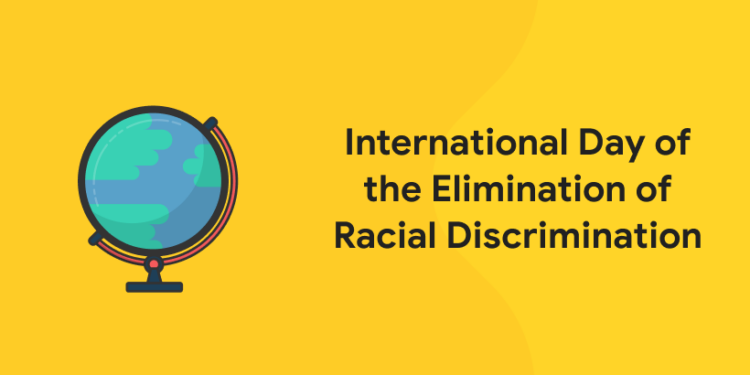Table of Contents
Each year, March 21st marks the International Day for the Elimination of Racial Discrimination, a date chosen by the United Nations General Assembly to honor the struggle against racial injustice. This important day, first observed in 1967, commemorates the tragic events of March 21, 1960, when 69 peaceful protestors were killed by police in Sharpeville, South Africa, during a demonstration against the oppressive apartheid “pass laws.” The resolution, adopted on October 26, 1966, serves as a call to the global community to intensify efforts to eradicate all forms of racial discrimination.
UNESCO, in collaboration with cities from the International Coalition of Inclusive and Sustainable Cities (ICCAR), continues to lead initiatives to raise awareness and foster education for tolerance, challenging racist stereotypes in both culture and media. The fight against racial discrimination remains at the heart of UNESCO’s mission to build peace in the minds of individuals and communities worldwide.
As we approach 2024, the message is clear: we must stand together to eliminate racial discrimination and promote equality for all.
International Day of the Elimination of Racial Discrimination: Date
March 21st marks the International Day for the Elimination of Racial Discrimination, chosen to honor the tragic events of 1960 in Sharpeville, South Africa, where 69 people were killed during a peaceful protest against apartheid’s “pass laws.” The United Nations declared this day to remind the world of the ongoing fight against racial discrimination and the need for continued efforts to achieve racial equality and justice globally.
International Day of the Elimination of Racial Discrimination: History
1: Who was the first woman President of India?
The International Day for the Elimination of Racial Discrimination was formed six years after an event, known as the Sharpeville tragedy or Sharpeville mass murder, which captured worldwide attention. This event involved police opening fire and killing 69 people at a peaceful protest against the apartheid “pass laws” in Sharpeville, South Africa, 21 March 1960.
The United Nations General Assembly called on the international community to increment its efforts to eliminate all forms of racial discrimination when it announced the day as a UN Day of observance in 1966. It also invited all world states and organizations to participate in a program of action to fight racism and racial discrimination in 1983. It held the World Conference condemning Racism and Racial Discrimination, Xenophobia and Related Intolerance in 2001. The UN continues its work to fight against all kinds of racial intolerance.
International Day of the Elimination of Racial Discrimination: Events
September 2021 – the UN General Assembly brought together world leaders for a one day meeting in New York to mark the 20th anniversary of the adoption of the Durban Declaration and Programme of Action under the topic of “Reparations, equality and racial justice for People of African Descent.”
2001 – the World Conference against Racism resulted in the most authoritative and comprehensive programme for fighting racism, racial discrimination, xenophobia and related intolerance: DDPA or The Durban Declaration and Programme of Action.
April 2009 – the Durban Review Conference examined world wide progress made in overcoming racism and concluded that much has to be achieved. Undoubtedly, the greatest achievement of the conference was the revived international commitment to the anti-racism agenda.
September 2011 – the United Nations General Assembly conducted a one day high-level meeting in New York to commemorate the 10th anniversary of the adoption of the DDPA or Durban Declaration and Programme of Action. There, world leaders adopted by agreement a political declaration proclaiming their “strong will to make the fight against racism, racial discrimination, xenophobia and related intolerance, and the security of the victims thereof, a high priority for [their own] countries.”
Coming as it did during the 2011 International Year for People of African Descent, the 10th anniversary was an opportunity to strengthen political commitment in combating racism and racial discrimination.
23 December 2013 – the General Assembly announced the International Decade for People of African Descent starting 1 January 2015 and ending on 31 December 2024, with the theme “People of African descent: justice, recognition and development.”
International Day of the Elimination of Racial Discrimination: Purpose
The United Nations General Assembly reiterates that all men and women are born free and are equal in dignity and rights and have the potential to impart constructively to the development and well-being of their societies. In its most latest resolution, the UN General Assembly also stressed that any doctrine of racial superiority is scientifically untrue, morally condemnable, socially unjust and dangerous and must be disapproved, together with theories that attempt to find the existence of separate human races.
The United Nations has been preoccupied with this issue since its foundation and the ban of racial discrimination is enclosed in all core international human rights instruments. It places obligations on States and tasks them with eliminating discrimination in the public and private spheres. The principle of equality also requires States to choose special measures to eliminate conditions that cause or help to continue racial discrimination.
Attempt free GK Mock Test! Download Entri App!
International Day of the Elimination of Racial Discrimination: Symbols
The United Nation logo is often connected with marketing and promotional material for this event. It features a structure of a world map (less Antarctica) centered on the North Pole, etched in a wreath containing crossed conventionalized branches of the olive tree. The world map depicts the area of concern to the UN in achieving its main purpose, security and peace while the olive branches symbolize peace. The projection of the map includes five concentric circles and extends to 60 degrees south latitude.
How is International Day of the Elimination of Racial Discrimination Celebrated?
The United Nations’ (UN) International Day for the Elimination of Racial Discrimination is celebrated with a series of events and activities worldwide on the 21st of March every year. The day aims to remind us of racial discrimination’s negative consequences. It also encourages us to remember our obligation and determination to fight racial discrimination.
Various activities and events are arranged in different countries worldwide on this day. Earlier activities included a webcast from the UN headquarters on March 21 including special appearances of UN leaders. Such events aim to help youngsters voice their opinions, find ways to fight racism, and encourage tolerance in their communities and in their lives.
Youngsters also have the option of posting their opinions regarding discussions on human rights and racial discrimination at Voices of Youth, which is UNICEF’s online bulletin board for young people. Contributors to Voices of Youth come from various parts of the world including Kazakhstan, Jamaica, and the Philippines. Other activities include photo projects, essays and publish articles that encourage the fight against racial discrimination.
International Day of the Elimination of Racial Discrimination: Quiz 2024
- When is International Day of the Elimination of Racial Discrimination observed?
a) March 21
b) May 21
c) April 21
d) June 21
Ans (a)
- International Day of the Elimination of Racial Discrimination was founded by which organisation?
a) UNESCO
b) WWF
c) NATO
d) APEC
Ans (a)
- International Day of the Elimination of Racial Discrimination was inspired by the incident that took place in which country?
a) India
b) USA
c) Pakistan
d) South Africa
Ans (d)
- In which year did the tragic incident take place?
a) 1950
b) 1960
c) 1980
d) 1970
Ans (b)
- International Day of the Elimination of Racial Discrimination was officially declared in the year __________.
a) 1962
b) 1965
c) 1966
d) 1967
Ans (c)
Entri App provides you with best practice questions for the complete preparation of various competitive exams. For the complete preparation, download the Entri App and start preparing.
Our R&D team provides the best material and books for the complete preparation of all government exams. We provide PDFs of the previous year’s question papers with solutions and detailed analysis. All you need to do is download the Entri app and start practicing.















